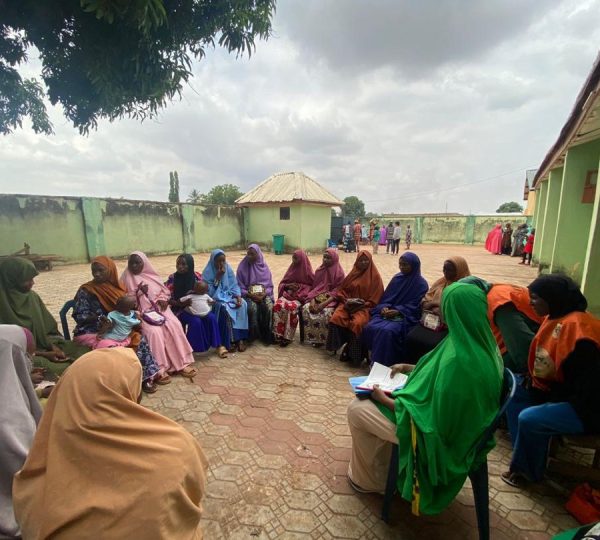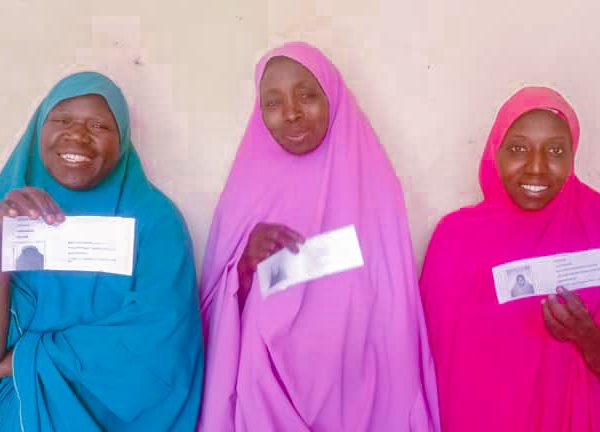2016 World Malaria Day: End Malaria for Good
Malaria is one of the most serious health problems facing the world and particularly Nigeria. On the occasion of the World Malaria Day 2016, stakeholders in malaria control programme are tasked to show high- level commitment to the vision of a world free of malaria. The theme set by the Roll Back Malaria Partnership is, End Malaria for Good. This reflects the needful intervention required for attaining malaria elimination. In Nigeria, the National Malaria Control Programme (NMEP) is focusing attention on management of Malaria with the slogan “Yes it’s achievable”.
Despite the successes made so far in the fight against malaria, the disease still has devastating impact on people’s health and lives. In Nigeria, an estimated 300,000 children die of malaria each year. This accounts for over 25% of infant mortality (children under the age of one), 30% of childhood mortality (children under five), and 11% of maternal mortality. About 50% of the population has at least one episode of malaria annually, while children aged less than 5 years have 2 to 4 attacks annually (NDHS 2008). Malaria is particularly severe among pregnant women and children under 5 years of age, due to their relatively lower levels of immunity. Malaria in pregnancy compromises the health of the woman and that of the unborn child. It causes negative pregnancy outcomes like still birth, spontaneous abortion etc. In 2001, the Federal Ministry of Health recommended intermittent preventive treatment (IPT) of malaria during pregnancy using three doses of sulphadoxine-pyrimethamine.
The World Malaria Day, 2016 is an opportunity to highlight the advances that have been made in malaria prevention and control, and to commit to continued investment and actions to accelerate progress against this deadly disease. Nigeria is implementing the Affordable Medicines Facility for malaria (AMFm), with the aim of increasing affordability of ACTs. Other malaria elimination activities include mass distribution campaigns of long lasting insecticidal nets (LLINs) and use of intermittent prevention therapy (IPT) drugs for mothers-to-be through antenatal care clinics. Nigeria is also implementing the integrated community case management (iCCM) of childhood illnesses an initiative of the World Health Organization which aims to improve appropriate case management of malaria, pneumonia and diarrhea among children 2 – 59 months.
These interventions are implemented through the efforts of government and NGOs like Society for Family Health (SFH). SFH utilises social marketing techniques and promotes products and programming to tackle some of Nigeria’s largest health burdens including Malaria.
SFH’s malaria programmes comprises of prevention and treatment activities.
Malaria prevention is of top priority as it is estimated that prevention alone could save Nigeria billions of Naira, as well as illness-related loss of productivity. Prevention programmes focus on promoting the use of, and providing mosquito bed nets, called Long Lasting Insecticidal (LLINS), along with education for families and health care providers on the importance of using bed nets to prevent mosquito bites – the mode of transmission for malaria. LLINs are factory-treated mosquito nets that are safe, easy to use, and come in a variety of sizes and colours to address individual needs. Some LLINs are effective for up to 4 years and will last a minimum of 20 washes – they require no re-treatment during this time, making them 5-10 times more effective than conventional re-treatable mosquito nets.
LLINs are an inexpensive and easy way to prevent malaria and thus reduce its burden on the health and economic well-being of Nigerians. SFH uses its extensive marketing and distribution channels to move LLINs all across Nigeria so that they are available to everyone, particularly women and children.
When prevention fails, treatment of malaria is critical.
Appropriate care seeking in the event of malaria is crucial. In seeking treatment for malaria, some mothers are given the wrong drugs for their children, while others find treatment options confusing and difficult to complete the dosage. In 2003, SFH and other stakeholders developed an innovative approach to “pre-package” malaria treatment for easy use by mothers and families to rapidly and correctly treat malaria. SFH’s treatment programmes to combat malaria are focused on promoting and distributing an innovative and effective drug for malaria, called Artemisinin-based Combination Therapy (ACT).
This is an easy to use pre-packaged drug combination that ensures effective treatment of malaria for children and adults as well. Now, SFH promotes ACT treatment using the pre-packaged method and distributes this product throughout Nigeria, especially in remote and rural communities. In 2014 alone, about 8.2 million doses of ACTs were distributed in the country. The Expanded Social Marketing Project in Nigeria a project of SFH in collaboration with partners with funding support from USAID is implementing the Integrated Community Case Management (iCCM) of common childhood diseases pilot in Ebonyi, a total of 5,964 ACTs were used to treat children under the age of 5 from November 2015 to March 2016. The iCCM pilot is implemented by trained Patent and Propriety Medicine Vendors (PPMVs) to demonstrate that management of common childhood illnesses such as malaria, diarrhea and pneumonia can be substantially improved on a population basis without the use of subsidies for medications or introduction of new types of providers. Similarly, from November 2014 to January 2016, 126,619 cases of confirmed malaria were treated with ACT under the Rapid Access Expansion (RAcE) Programme in Abia state, a programme implemented by SFH and funded by Global Affairs Canada through the World Health Organization.
SFH is actively engaged in behavioural change communication activities through mass media and community-based interpersonal communication activities to facilitate the adoption of positive behaviours by individuals and communities. These interpersonal communication activities, available mostly in hard to reach communities, help to ensure that individuals are equipped with the right information and attitudes to prevent and treat malaria, making use of the life saving commodities that SFH provides in those areas. SFH also works closely with the Federal Ministry of Health on technical matters, education, training, and coordinating on policy and research to move the nation forward on both prevention and treatment issues in the battle against malaria.
Donors include the Global Fund to Fight AIDS, Tuberculosis, and Malaria (GFATM), Bill & Melinda Gates Foundation and the United State President’s Malaria Initiative, Global Affairs Canada through the World Health Organisation, amongst other donors, have played pivotal roles in scaling up malaria prevention and treatment in Nigeria and provide support to the malaria interventions implemented.
SFH has four projects that address malaria – the Global Fund Malaria Project, the Expanded Social Marketing Project in Nigeria (ESMPIN), the Rapid Access Expansion (RAcE) Programme and the Africa Health Markets for Equity (AHME) Programme. SFH also leads ACTwatch in Nigeria. ACTwatch is a multi-country research project designed to fill evidence gaps on malaria diagnostics, antimalarial medicines and fever case management in the private and public sectors. ACTwatch collects data to inform evidence-based malaria control policies and programmes.
Regardless of the giant strides made so far, more needs to be done to defeat this fight against malaria in Nigeria. This could be achieved by intensifying our efforts and exploring innovative approaches to tackle the disease. Behaviour change communication to increase use of malaria prevention is key in this regard.
The future belongs to those that prepare for it today. Let’s “End Malaria for Good”.
Happy World Malaria Day Celebration from SFH and Partners!!!




